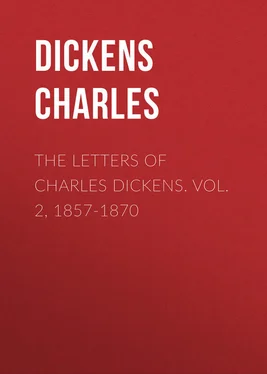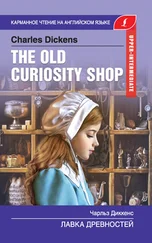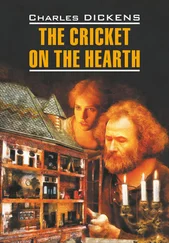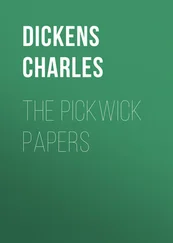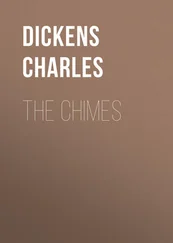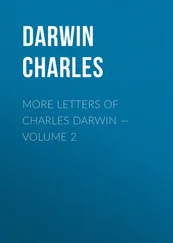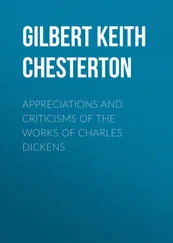Чарльз Диккенс - The Letters of Charles Dickens. Vol. 2, 1857-1870
Здесь есть возможность читать онлайн «Чарльз Диккенс - The Letters of Charles Dickens. Vol. 2, 1857-1870» — ознакомительный отрывок электронной книги совершенно бесплатно, а после прочтения отрывка купить полную версию. В некоторых случаях можно слушать аудио, скачать через торрент в формате fb2 и присутствует краткое содержание. Жанр: foreign_antique, foreign_prose, на английском языке. Описание произведения, (предисловие) а так же отзывы посетителей доступны на портале библиотеки ЛибКат.
- Название:The Letters of Charles Dickens. Vol. 2, 1857-1870
- Автор:
- Жанр:
- Год:неизвестен
- ISBN:нет данных
- Рейтинг книги:3 / 5. Голосов: 1
-
Избранное:Добавить в избранное
- Отзывы:
-
Ваша оценка:
- 60
- 1
- 2
- 3
- 4
- 5
The Letters of Charles Dickens. Vol. 2, 1857-1870: краткое содержание, описание и аннотация
Предлагаем к чтению аннотацию, описание, краткое содержание или предисловие (зависит от того, что написал сам автор книги «The Letters of Charles Dickens. Vol. 2, 1857-1870»). Если вы не нашли необходимую информацию о книге — напишите в комментариях, мы постараемся отыскать её.
The Letters of Charles Dickens. Vol. 2, 1857-1870 — читать онлайн ознакомительный отрывок
Ниже представлен текст книги, разбитый по страницам. Система сохранения места последней прочитанной страницы, позволяет с удобством читать онлайн бесплатно книгу «The Letters of Charles Dickens. Vol. 2, 1857-1870», без необходимости каждый раз заново искать на чём Вы остановились. Поставьте закладку, и сможете в любой момент перейти на страницу, на которой закончили чтение.
Интервал:
Закладка:
It is a great deal better than it was, and he can get into new hotels and up the stairs with two thick sticks, like an admiral in a farce. His spirits have improved in a corresponding degree, and he contemplates cheerfully the keeping house at Doncaster. I thought (as I told you) he would never have gone there, but he seems quite up to the mark now. Of course he can never walk out, or see anything of any place. We have done our first paper for H. W., and sent it up to the printer's.
The landlady of the little inn at Allonby lived at Greta Bridge, in Yorkshire, when I went down there before "Nickleby," and was smuggled into the room to see me, when I was secretly found out. She is an immensely fat woman now. "But I could tuck my arm round her waist then, Mr. Dickens," the landlord said when she told me the story as I was going to bed the night before last. "And can't you do it now," I said, "you insensible dog? Look at me! Here's a picture!" Accordingly, I got round as much of her as I could; and this gallant action was the most successful I have ever performed, on the whole. I think it was the dullest little place I ever entered; and what with the monotony of an idle sea, and what with the monotony of another sea in the room (occasioned by Collins's perpetually holding his ankle over a pail of salt water, and laving it with a milk jug), I struck yesterday, and came away.
We are in a very remarkable old house here, with genuine old rooms and an uncommonly quaint staircase. I have a state bedroom, with two enormous red four-posters in it, each as big as Charley's room at Gad's Hill. Bellew is to preach here to-morrow. "And we know he is a friend of yours, sir," said the landlord, when he presided over the serving of the dinner (two little salmon trout; a sirloin steak; a brace of partridges; seven dishes of sweets; five dishes of dessert, led off by a bowl of peaches; and in the centre an enormous bride-cake – "We always have it here, sir," said the landlord, "custom of the house.") (Collins turned pale, and estimated the dinner at half a guinea each.)
This is the stupidest of letters, but all description is gone, or going, into "The Lazy Tour of Two Idle Apprentices."
Kiss the darling Plorn, who is often in my thoughts. Best love to Charley, Mamey, and Katie. I will write to you again from Doncaster, where I shall be rejoiced to find another letter from you.
Ever affectionately, my dearest Georgy.My dear Georgy,
I found your letter here on my arrival yesterday. I had hoped that the wall would have been almost finished by this time, and the additions to the house almost finished too – but patience, patience!
We have very good, clean, and quiet apartments here, on the second floor, looking down into the main street, which is full of horse jockeys, bettors, drunkards, and other blackguards, from morning to night – and all night. The races begin to-day and last till Friday, which is the Cup Day. I am not going to the course this morning, but have engaged a carriage (open, and pair) for to-morrow and Friday.
"The Frozen Deep's" author gets on as well as could be expected. He can hobble up and down stairs when absolutely necessary, and limps to his bedroom on the same floor. He talks of going to the theatre to-night in a cab, which will be the first occasion of his going out, except to travel, since the accident. He sends his kind regards and thanks for enquiries and condolence. I am perpetually tidying the rooms after him, and carrying all sorts of untidy things which belong to him into his bedroom, which is a picture of disorder. You will please to imagine mine, airy and clean, little dressing-room attached, eight water-jugs (I never saw such a supply), capital sponge-bath, perfect arrangement, and exquisite neatness. We breakfast at half-past eight, and fall to work for H. W. afterwards. Then I go out, and – hem! look for subjects.
The mayor called this morning to do the honours of the town, whom it pleased the Inimitable to receive with great courtesy and affability. He propounded invitation to public déjeûner , which it did not please the Inimitable to receive, and which he graciously rejected.
That's all the news. Everything I can describe by hook or by crook, I describe for H. W. So there is nothing of that sort left for letters.
Best love to dear Mamey and Katey, and to Charley, and to Harry. Any number of kisses to the noble Plorn.
Ever affectionately.My dear Sir,
I have had the honour and pleasure of receiving your letter of the 28th of last month, informing me of the distinction that has been conferred upon me by the Council of the Birmingham and Midland Institute.
Allow me to assure you with much sincerity, that I am highly gratified by having been elected one of the first honorary members of that establishment. Nothing could have enhanced my interest in so important an undertaking; but the compliment is all the more welcome to me on that account.
I accept it with a due sense of its worth, with many acknowledgments and with all good wishes.
I am ever, my dear Sir, very faithfully yours.My dear Yates,
I retain the story with pleasure; and I need not tell you that you are not mistaken in the last lines of your note.
Excuse me, on that ground, if I say a word or two as to what I think (I mention it with a view to the future) might be better in the paper. The opening is excellent. But it passes too completely into the Irishman's narrative, does not light it up with the life about it, or the circumstances under which it is delivered, and does not carry through it, as I think it should with a certain indefinable subtleness, the thread with which you begin your weaving. I will tell Wills to send me the proof, and will try to show you what I mean when I shall have gone over it carefully.
Faithfully yours always.My dear Stone,
I find on enquiry that the "General Theatrical Fund" has relieved non-members in one or two instances; but that it is exceedingly unwilling to do so, and would certainly not do so again, saving on some very strong and exceptional case. As its trustee, I could not represent to it that I think it ought to sail into those open waters, for I very much doubt the justice of such cruising, with a reference to the interests of the patient people who support it out of their small earnings.
Affectionately ever.Book III
1858
All through this year, Charles Dickens was constantly moving about from place to place. After much and careful consideration, he had come to the determination of, for the future, giving readings for his own benefit. And although in the spring of this year he gave one reading of his "Christmas Carol" for a charity, all the other readings, beginning from the 29th April, and ever after, were for himself. In the autumn of this year he made reading tours in England, Scotland, and Ireland, always accompanied by his friend and secretary, Mr. Arthur Smith. At Newcastle, Charles Dickens was joined by his daughters, who accompanied him in his Scotch tour. The letters to his sister-in-law, and to his eldest daughter, are all given here, and will be given in all future reading tours, as they form a complete diary of his life and movements at these times. To avoid the constant repetition of the two names, the beginning of the letters will be dispensed with in all cases where they follow each other in unbroken succession. The Mr. Frederick Lehmann mentioned in the letter written from Sheffield, had married a daughter of Mr. Robert Chambers, and niece of Mrs. Wills. Coming to settle in London a short time after this date, Mr. and Mrs. Lehmann became intimately known to Charles Dickens and his family – more especially to his eldest daughter, to whom they have been, and are, the kindest and truest of friends. The "pretty little boy" mentioned as being under Mrs. Wills's care, was their eldest son.
Читать дальшеИнтервал:
Закладка:
Похожие книги на «The Letters of Charles Dickens. Vol. 2, 1857-1870»
Представляем Вашему вниманию похожие книги на «The Letters of Charles Dickens. Vol. 2, 1857-1870» списком для выбора. Мы отобрали схожую по названию и смыслу литературу в надежде предоставить читателям больше вариантов отыскать новые, интересные, ещё непрочитанные произведения.
Обсуждение, отзывы о книге «The Letters of Charles Dickens. Vol. 2, 1857-1870» и просто собственные мнения читателей. Оставьте ваши комментарии, напишите, что Вы думаете о произведении, его смысле или главных героях. Укажите что конкретно понравилось, а что нет, и почему Вы так считаете.
